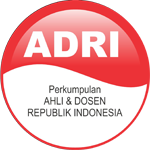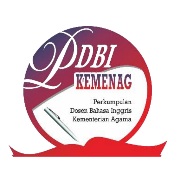EFL Apps Potential Unleashed: Enhancing Pre-service Teachers' Digital Literacy via Tech-Vlog
Abstract
The aim of this research is to find out how effective English as a Foreign Language (EFL) technology video blogs are as a means of improving Digital Literacy (DL) before EFL services. This research uses sequential explanatory mixed methods, as well as a research design designed as survey and descriptive. Forty-three students in the English department of a state university in West Nusa Tenggara, Indonesia, took microteaching and technology-enhanced language learning (TELL) classes. Qualitative data was obtained from interviews and reflective journals, while quantitative data was obtained from digital literacy questionnaires. These results suggest that the technology video blog platform had a positive effect on participants' confidence in incorporating technology into their future classrooms. Participants reported that they had better skills in choosing the right apps, creating interactive activities, and encouraging students to become more digitally literate. This research found that technology video blog platforms are a promising tool for improving EFL pre-service teachers' digital literacy. These results emphasize how important it is to combine reflective practice and experiential learning to help pre-service teachers use EFL teaching applications effectively. These results will have an impact on teacher education programs because they will help future educators acquire the digital skills necessary to thrive in a technologically driven educational environment.
Keywords
Full Text:
PDFReferences
A, A. M. (2019). The Use of Technology in English Language Teaching. Frontiers in Education Technology, 2(3), p168. https://doi.org/10.22158/fet.v2n3p168
Braun, V., & Clarke, V. (2006). Using thematic analysis in psychology. Qualitative Research in Psychology, 3(2), 77–101. https://doi.org/10.1191/1478088706qp063oa
Chamberlain, D. (2010). YouTube: Online Video and Participatory Culture , by Jean Burgess and Joshua Green . Popular Communication, 8(1), 96–98. https://doi.org/10.1080/15405700903502312
Combe, C., & Codreanu, T. (2016). CALL communities and culture – short papers from EUROCALL 2016. CALL Communities and Culture – Short Papers from EUROCALL 2016, 2016(2016), 119–124. https://doi.org/10.14705/rpnet.2016.eurocall2016.9781908416445
Creswell, J. W. (2016). Qualitative Inquiry and Research Design. Sage Publications.
Eryansyah, E., Sriwijaya, U., Petrus, I., Sriwijaya, U., Ernalida, E., & Sriwijaya, U. (2020). Pre-Service EFL Teachers ’ Digital Literacy a nd Factors Affecting Digital Literacy Development. December. https://doi.org/10.22437/irje.v4i2.10892
Falloon, G. (2020). From digital literacy to digital competence: the teacher digital competency (TDC) framework. Educational Technology Research and Development, 68(5). https://doi.org/10.1007/s11423-020-09767-4
Fidan, M., & Debbag, M. (2018). The Usage of Video Blog (vlog) in the “School Experience” Course: The Opinions of the Pre-service Teachers (Okul Deneyimi Dersinde Video Günlüğü (vlog) Kullanımı: Öğretmen Adaylarının Görüşleri). Journal of Education and Future, January, 161–177. https://www.researchgate.net/publication/322963076_The_Usage_of_Video_Blog_vlog_in_the_School_Experience_Course_The_Opinions_of_the_Pre-service_Teachers_Okul_Deneyimi_Dersinde_Video_Gunlugu_vlog_Kullanimi_Ogretmen_Adaylarinin_Gorusleri
Fraillon, J., Ainley, J., Schulz, W., Friedman, T., & Duckworth, D. (2020). Reflections on the IEA International Computer and Information Literacy Study 2018. In Preparing for Life in a Digital World. https://doi.org/10.1007/978-3-030-38781-5_8
Geng, F., Yu, S., Liu, C., & Liu, Z. (2022). Teaching and Learning Writing in English as a Foreign Language (EFL) School Education Contexts: A Thematic Review. Scandinavian Journal of Educational Research, 66(3), 491–504. https://doi.org/10.1080/00313831.2021.1897872
Herodotou, C., Sharples, M., Gaved, M., Kukulska-Hulme, A., Rienties, B., Scanlon, E., & Whitelock, D. (2019). Innovative Pedagogies of the Future: An Evidence-Based Selection. Frontiers in Education, 4(October), 1–14. https://doi.org/10.3389/feduc.2019.00113
Huang, H. W. (2021). Effects of smartphone-based collaborative vlog projects on EFL learners’ speaking performance and learning engagement. Australasian Journal of Educational Technology, 37(6), 18–40. https://doi.org/10.14742/ajet.6623
Kashefian-Naeeini, S., & Kouhpeyma, Y. (2020). Fostering Learner Autonomy in Educational Settings. International Journal of Multicultural and Multireligious Understanding, 7(7), 190. https://doi.org/10.18415/ijmmu.v7i7.1765
Kumi-Yeboah, A., Kim, Y., Sallar, A. M., & Kiramba, L. K. (2020). Exploring the use of digital technologies from the perspective of diverse learners in online learning environments. Online Learning Journal, 24(4), 42–63. https://doi.org/10.24059/olj.v24i4.2323
Laanpere, M. (2019). Recommendations on Assessment Tools for Monitoring Digital literacy. Донну, 56, 34.
Li, M., & Yu, Z. (2022). Teachers’ Satisfaction, Role, and Digital Literacy during the COVID-19 Pandemic. Sustainability (Switzerland), 14(3). https://doi.org/10.3390/su14031121
Muslimin, A. I., Mukminatien, N., & Ivone, F. M. (2022). The Effect of Technology Based Instruction Lesson Plan on EFL Pre-Service Teachers’ TPACK Self-Efficacy. World Journal of English Language, 12(6), 304–314. https://doi.org/10.5430/wjel.v12n6p304
Muslimin, A. I., Mukminatien, N., & Ivone, F. M. (2023). TPACK-SAMR digital literacy competence, technostress, and teaching performance: Correlational study among EFL lecturers. Contemporary Educational Technology, 15(2), ep409. https://doi.org/10.30935/cedtech/12921
Spante, M., Hashemi, S. S., Lundin, M., & Algers, A. (2018). Digital competence and digital literacy in higher education research: Systematic review of concept use. Cogent Education, 5(1), 1–21. https://doi.org/10.1080/2331186X.2018.1519143
Su, Y. (2023). Delving into EFL teachers’ digital literacy and professional identity in the pandemic era: Technological Pedagogical Content Knowledge (TPACK) framework. Heliyon, 9(6). https://doi.org/10.1016/j.heliyon.2023.e16361
Tang, Chun Meng; Chaw, L. Y. (2016). Literasi Digital Nusantara-Meningkatkan Daya Saing Generasi Muda. Digital Literacy: A Prerequisite for Effective Learning in a Blended Learning Environment?, 14(1), 54–65.
DOI: http://dx.doi.org/10.29240/ef.v7i2.7935
Refbacks
- There are currently no refbacks.
Copyright (c) 2023 Afif Ikhwanul Muslimin

This work is licensed under a Creative Commons Attribution-NonCommercial-ShareAlike 4.0 International License.
INDEXED BY:
 This work is licensed under a Creative Commons Attribution-NonCommercial-ShareAlike 4.0 International License
This work is licensed under a Creative Commons Attribution-NonCommercial-ShareAlike 4.0 International License
@ ENGLISH FRANCA : Academic Journal of English Language and Education
Jl. Dr. AK Gani No 1 Dusun Curup, Rejang Lebong Regency, Bengkulu Province, Indonesia, 39119.
Dr. Eka Apriani, M.Pd., email: efranca@iaincurup.ac.id, eka.apriani@iaincurup.ac.id.




.png)












